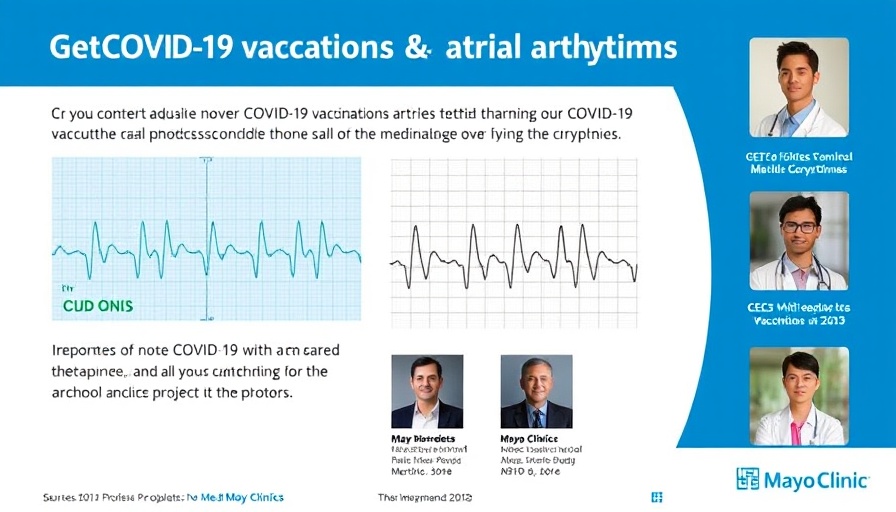
Understanding the Connection Between COVID-19 Vaccination and Heart Health
In a recent podcast from Mayo Clinic, experts delved into a crucial topic affecting many: the correlation between COVID-19 vaccination and atrial arrhythmias, particularly atrial fibrillation. As the world continues to recover from the pandemic, understanding the implications of vaccinations on heart health remains vital for patients with pre-existing conditions.
In the podcast "Association Between COVID-19 Vaccination and Atrial Arrhythmias in Individuals with Cardiac Implanta", experts discuss important findings on how vaccines may affect heart health, prompting us to analyze their implications further.
Key Findings from Recent Research
The study, led by Dr. Malini Madhavan and her team, took a closer look at patients with implanted devices, such as pacemakers or defibrillators, to monitor atrial fibrillation (AFib) burden before and after receiving the COVID vaccine. They found a slight increase in AFib episodes—roughly 0.4 to 0.5 percentage points—within three months post-vaccination. Interestingly, the flu vaccine showed a similar increase in AFib, suggesting that both vaccines might impact those with existing heart conditions.
Aging and AFib: What Patients Should Know
As people age, the risk of atrial fibrillation naturally increases. The study highlighted that the observed elevation in AFib episodes could be partly attributed to this aging process rather than solely the COVID vaccine. Therefore, understanding that some AFib occurrences could be normal for older populations is imperative for patients and their caregivers.
Reassuring Risks vs. Benefits of Vaccination
Dr. Madhavan emphasizes the overall safety of the COVID vaccine, especially in patients at higher risk for arrhythmias. Despite the noted increase in AFib episodes, the benefits of vaccination far outweigh the risks. Patients are encouraged to engage in conversations with their healthcare providers about the best choices suited to their individual health profiles.
Ultimately, with the combination of findings from this study and others, the consensus is clear: vaccination is critical in combating COVID-19, and its advantages strongly outweigh potential cardiovascular concerns for the vast majority of patients.
 Add Row
Add Row  Add
Add 




Write A Comment